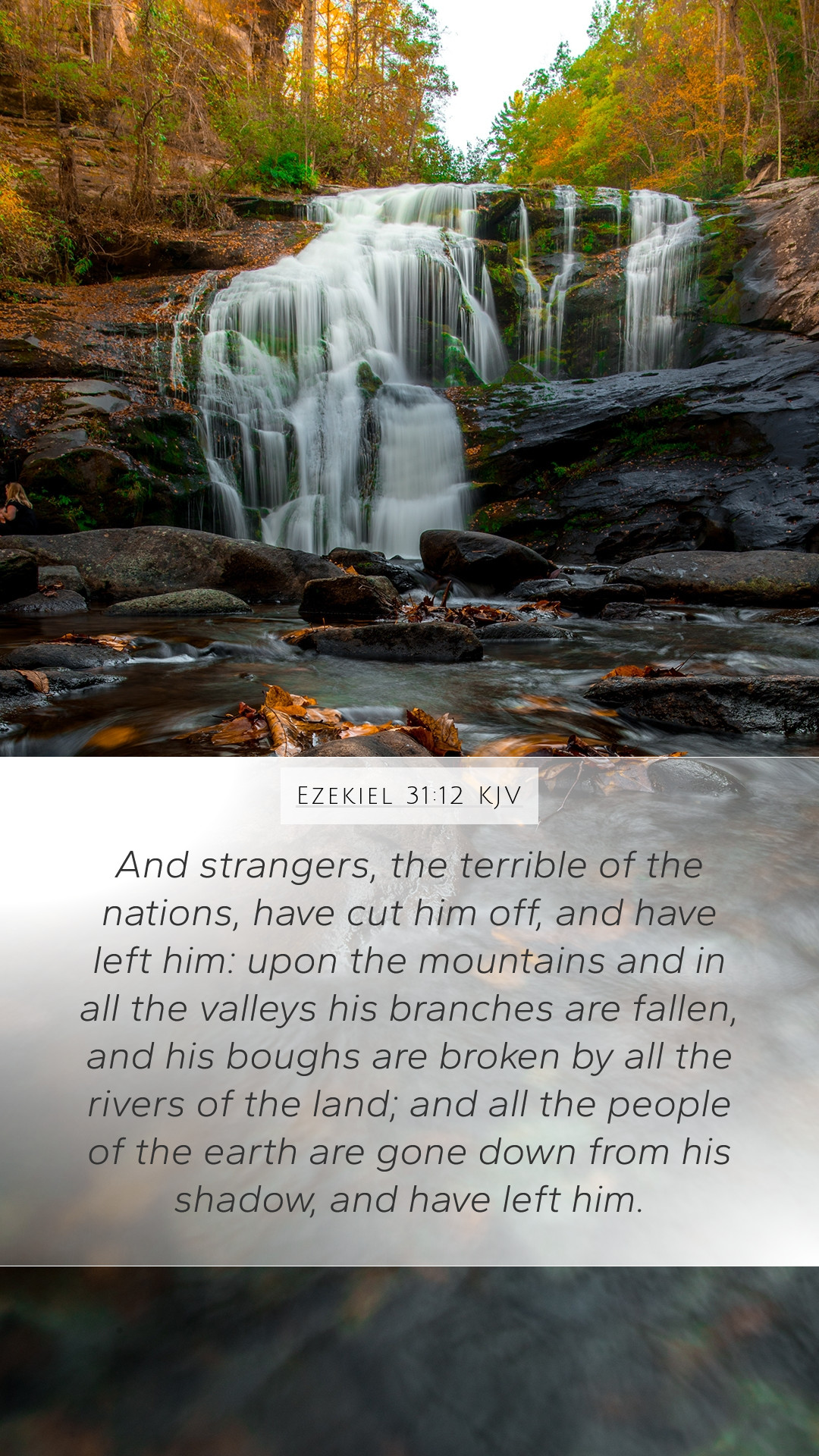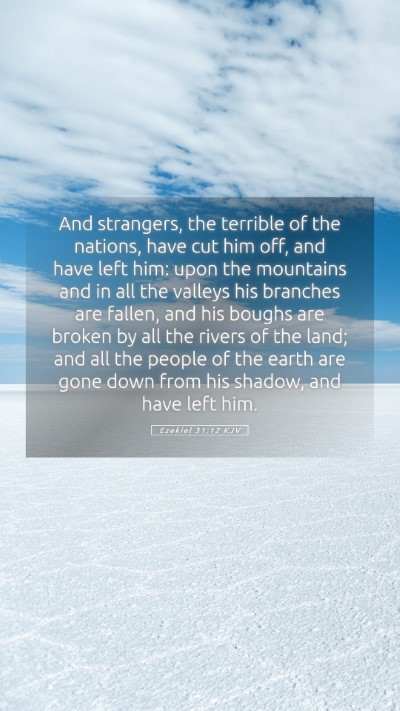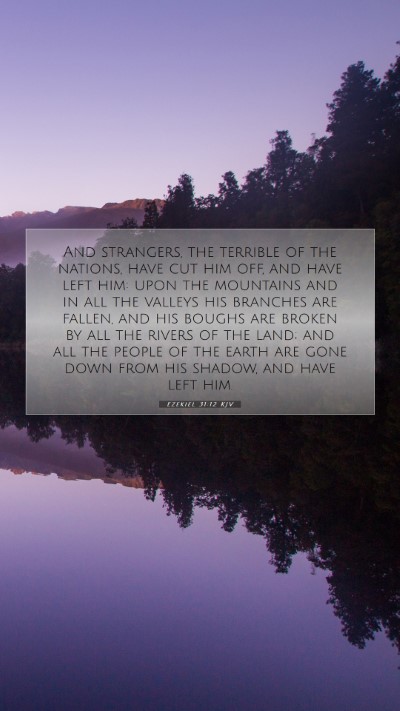Ezekiel 31:12 - Bible Verse Commentary
The verse Ezekiel 31:12 states, “And strangers, the terrible of the nations, have cut him off, and have left him: upon the mountains and in all the valleys his branches are fallen, and his boughs are broken by all the rivers of the land; and all the people of the earth are gone down from his shadow, and have left him.” This verse evokes profound imagery that calls for a comprehensive exploration through Bible verse meanings and interpretations.
Contextual Overview
In the context of Ezekiel 31, the prophet uses the metaphor of a great cedar tree to describe the power and pride of Egypt. This tree symbolizes not only physical strength but also the social and political influence that Egypt once held among the nations. The cutting down of this tree signifies God’s judgment upon Egypt and its eventual demise.
Interpretative Insights
- Metaphorical Interpretation: The "strangers" mentioned in the verse refer to foreign nations that will invade and conquer Egypt. This serves as a reminder of the transient nature of power and the judgments that befall nations when they turn away from God (Matthew Henry).
- Imagery of Judgment: The destruction of this great tree emphasizes the severity of God’s judgment. The branches that have fallen illustrate the loss of influence and the abandonment by once-supportive nations (Albert Barnes).
- Theological Reflection: The verse speaks to the theological principle that pride often precedes destruction. Egypt's arrogance and self-reliance brought about its downfall, showcasing God’s sovereignty over nations (Adam Clarke).
Historical Context
This passage was written during a time when Israel was facing its own destruction, serving as a warning to Israel to learn from the fate of powerful nations like Egypt. Understanding the historical context of the period prior to the Babylonian captivity enhances our biblical exegesis.
Key Themes
- God's Sovereignty: This verse underscores the theme of God's ultimate control over nations and rulers. It illustrates that no empire can stand against His will.
- Consequences of Pride: It serves as a cautionary tale against arrogance and reliance on human power rather than divine guidance.
- Judgment and Restoration: While this verse focuses on judgment, it also hints at the potential for restoration for those who turn back to God (Matthew Henry).
Modern Application
The meaning of this Bible verse transcends its historical context, offering relevant lessons for today’s readers. It invites individuals and nations to reflect on their paths toward pride and destruction, urging a return to humility before God.
Related Bible Cross References
- Ezekiel 30:18: Discusses the impending doom of Egypt and the destruction of its glory.
- Jeremiah 46:17: Highlights the defeat of Egypt and the fear that will befall its warriors.
- Isaiah 10:33-34: Portrays God’s power in bringing down the mighty trees of Lebanon, symbolically representing great nations.
Conclusion
In summary, Ezekiel 31:12 serves as a vivid reminder of the consequences of pride and the certainty of God's judgment. For those seeking a deeper understanding of Scripture, this verse, among others, can be studied through various Bible study guides and resources, allowing for an in-depth Bible verse analysis. Understanding such difficult Bible passages enriches personal and communal Bible study experiences.


